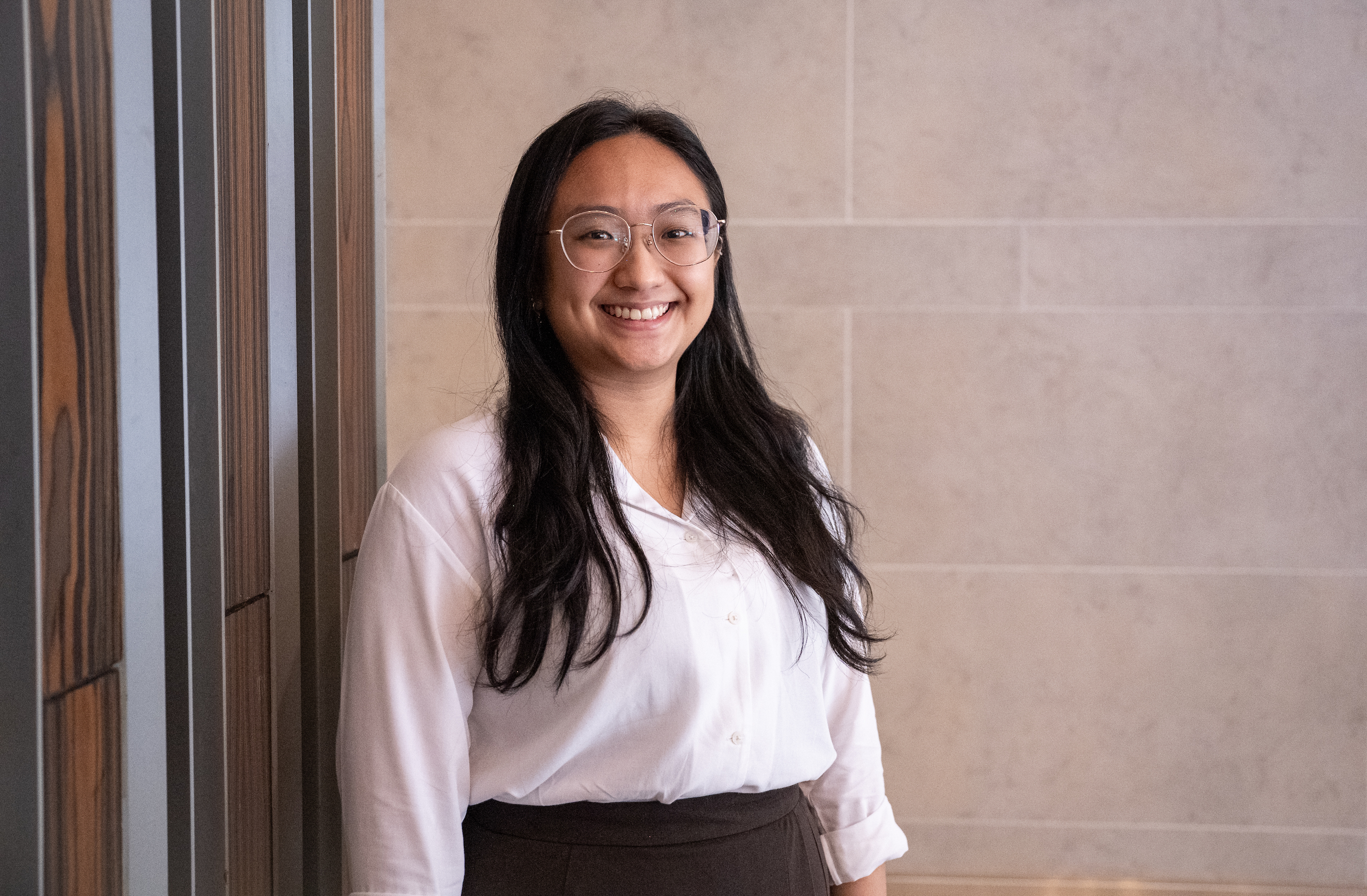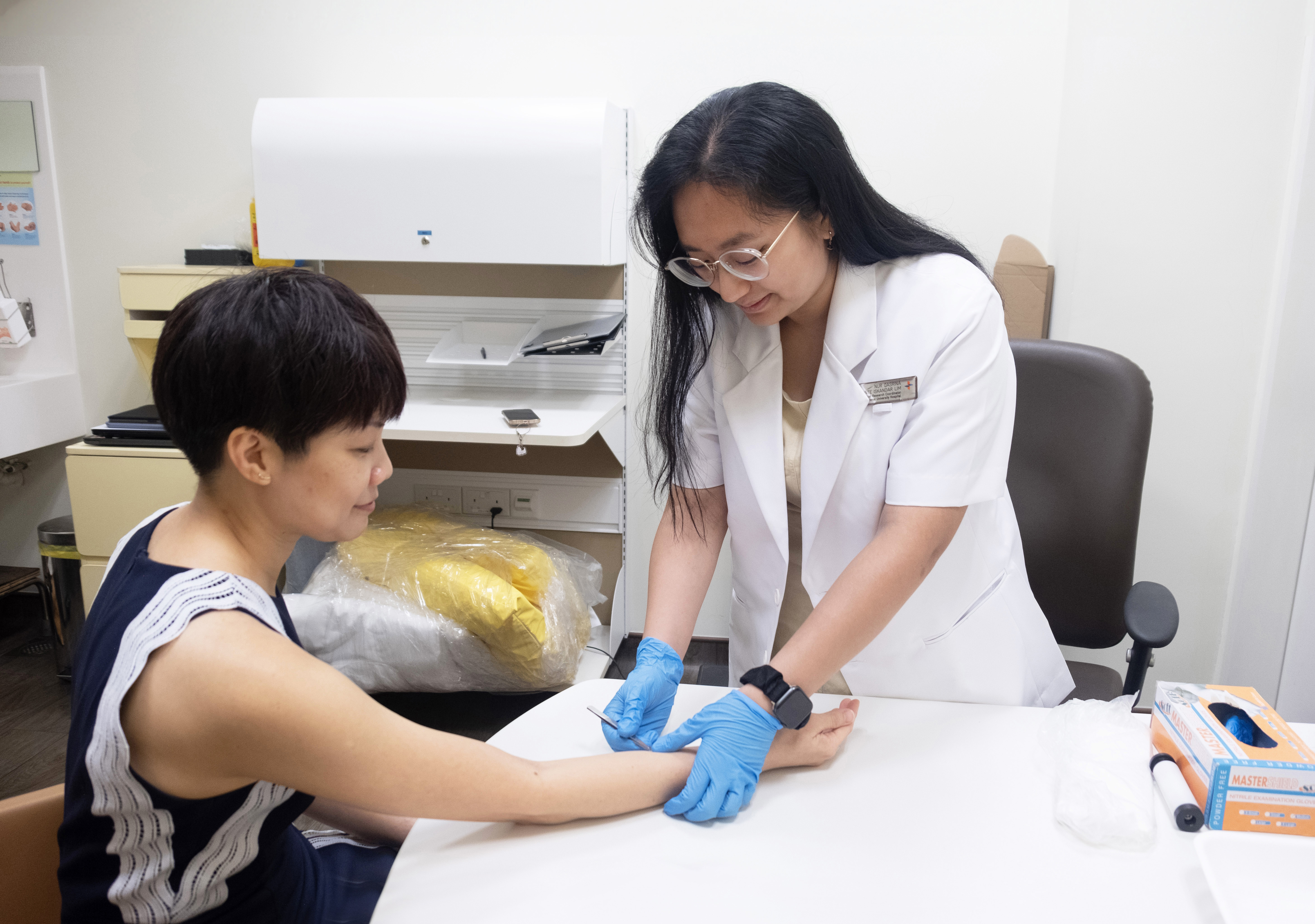Inspired by her patients, this fresh graduate finds her calling in healthcare research
In early 2020, while the world juggled between building its frontline defence against COVID-19 and finding a new normal through pandemic hobbies such as perfecting sourdough starters, Nur Qasrina Binte Iskandar Lim graduated with a degree in Life Science and was looking forward to becoming a working adult.
However, Qasrina soon grew disheartened when her job search did not seem to progress into anything concrete.
“As I saw my peers securing job offers, I kept thinking when will it be my turn? Am I not good enough?” she said.
A turning point in Qasrina’s job search came when her batchmate who had joined National University Hospital (NUH) as a Clinical Research Coordinator (CRC), posted a job opening on LinkedIn. While it was not a profession she was familiar with, it opened up new possibilities for her career.

Nur Qasrina Binte Iskandar Lim, a young CRC of over two years
When she read up more about the profession, Qasrina realised that there were CRC positions available across public healthcare institutions in Singapore and the job scope appealed to her.
“The opportunity to contribute to healthcare research and make a difference for patients intrigued me,” she said.
Previously, she had only applied to jobs that were more well-known in the science field, such as those of a research assistant or medical writer.
In May 2021, Qasrina began her role as a CRC in NUH, marking a fresh start in her career.
Her first two weeks of training and orientation were a balancing act, as she had to quickly get up to speed in unfamiliar tasks such as patient recruitment and data collection. It was overwhelming at first, as each day required her to apply the new skills she had picked up during the orientation.
These include patient consent-taking, patient recruitment for cohort studies, coordinating logistics and ensuring the collection of quality data and data entry.
CRCs are professionals who have core skills and knowledge to manage clinical research studies. This consists of both soft skills and hard skills.
“My science degree helped me grasp concepts such as study protocols and research monitoring more quickly,” shared Qasrina.
As a newcomer however, she faced difficulties in recruiting patients. Qasrina persisted and sought guidance from senior CRCs to refine her recruitment strategies and began building rapport with nurses from whom she learnt skills in patient engagement.
“I kept a resilient mindset by approaching each patient with empathy and addressed their anxieties,” she said.
Turning her own challenges as a new CRC into something valuable others can benefit from, Qasrina designed an orientation programme to ease future newcomers into the role. This included a training checklist which helps her juniors face significantly less challenges in coordinating research studies, entering data entry, tracking budgets and interacting with patients. Her thoughtful approach streamlined training processes, making the learning curve for new CRCs less daunting.
Beyond skin deep: understanding patients on a deeper level
As a junior CRC, Qasrina was given the opportunity to work with various departments across the hospital from internal medicine, infectious diseases, to the organ transplant unit.
Over the past year, Qasrina has been managing a cross-sectional dermatology qualitative research study that focused on the care experience of over 1,000 patients who were being treated for their chronic eczema and psoriasis.

One of Qasrina's duties involves the collection of skin samples from study participants
The behind-the-scenes heavy lifting included obtaining approval from regulatory authorities, optimising participant recruitment strategies, improving workflows and maintaining stakeholder relationships.
This cross-sectional study explored possible ways to improve the patient-physician relationship.
The study’s findings were published in the Journal of the American Medical Association (JAMA) Dermatology in July 2023, and Qasrina and her team also presented their research at a dermatology conference in San Diego in March this year.
“It was nerve-wracking to speak to a room full of clinicians but a great learning opportunity nonetheless,” she recounted.

Qasrina at the JAMA Dermatology conference in San Diego in 2024
Reflecting on the study, Qasrina expressed gratitude to the patients who were involved in the research study, whose consent has facilitated advancements in clinical research. In spite of the discomfort of their chronic conditions, their commitment to keep showing up for their medical appointments and research reviews has been an inspiration to Qasrina.
"It really warms my heart when patients give feedback that their conditions are improving,” she said.
Qasrina also shared that patients have conveyed their appreciation when they learn about the research efforts to help them better manage their chronic conditions and thanked the research team for the care and effort poured into researching their conditions even though it may not be life threatening.
Small wins that re-shape the future of medical practice
These poignant moments have strengthened Qasrina's determination to continue in her role as a CRC, contributing to the advancement of clinical research studies for patients.
Reminded of the steps she took to get to where she is today, Qasrina firmly believes that small wins, such as new discoveries from research studies, can lead to big advances, potentially reshaping future medical practices and refining the approach to patient consultations.
As clinical research studies are conducted in phases, they can last for months to years. “Despite the long journey, the studies do offer a ray of hope to patients,” she reflected.
As a fresh university graduate, Qasrina aspired to create a sustained impact and enhance people's lives. Her role as a CRC has translated that hope into reality, and empowered her with the competency to do so on a broader scale.
Qasrina offered this advice to others who are at career crossroads, “Stay open to unexpected opportunities. Each experience serves as a stepping-stone to develop skills and build resilience for future roles. Even if you have veered from your initially envisioned path, trust that it will eventually lead you to your desired destination.”


